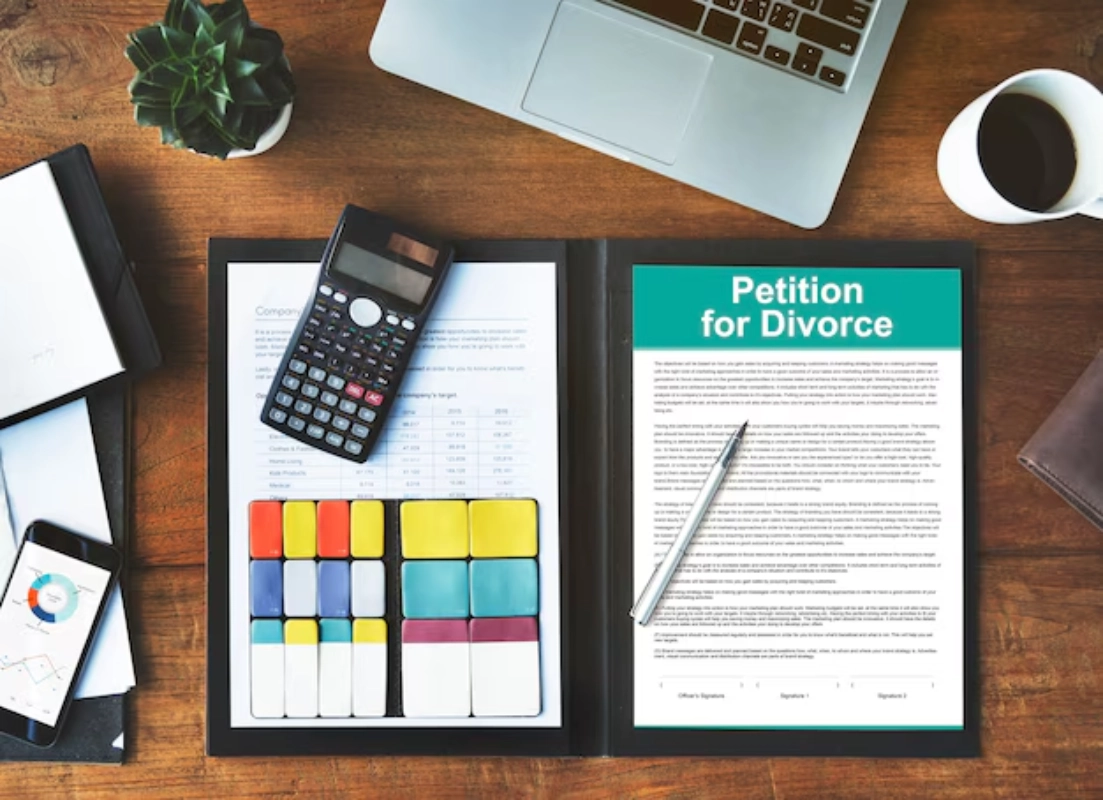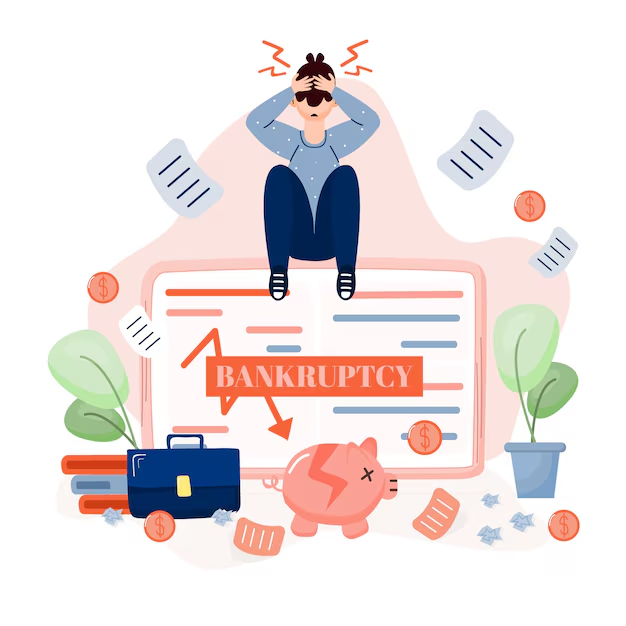Can I File Chapter 7 Bankruptcy Without a Lawyer?

Chapter 7 Bankruptcy: Filing Without a Lawyer Explained
Filing for Chapter 7 bankruptcy can be a lifeline for individuals drowning in unsecured debt. It offers a fresh financial start by discharging debts like credit card balances, medical bills, and personal loans. However, the process can be complex, and many people wonder, Can I File Chapter 7 Bankruptcy Without a Lawyer? While it is legally possible to represent yourself, it requires careful preparation and attention to detail. This guide will walk you through the essentials of filing Chapter 7 bankruptcy without legal assistance, including eligibility, steps, common mistakes, and resources to help you succeed.
Can I File Chapter 7 Bankruptcy Without a Lawyer?
Yes, individuals have the right to file Chapter 7 bankruptcy without legal representation. However, bankruptcy laws are complex, and the process involves completing numerous forms, gathering financial documents, and adhering to strict deadlines. Missing a deadline or providing inaccurate information can cause complications and even result in the dismissal of your case.
Filing pro se can be a viable option if you have a relatively simple financial situation with few assets and straightforward debts. However, if your case involves complex assets, multiple sources of income, or creditor disputes, consulting a bankruptcy attorney may be a safer choice.
For more information on legal processes, visit Legal Case Review.
Eligibility Requirements for Chapter 7 Bankruptcy
Before filing for Chapter 7 bankruptcy, you must meet specific eligibility criteria. The most important requirement is passing the means test. This test compares your income to the median income in your state. If your income is below the median, you qualify. If it’s higher, you may still be eligible if you can demonstrate financial hardship.
Other requirements include:
- Completing a credit counseling course from an approved agency within six months before filing.
- Not having filed for Chapter 7 bankruptcy in the past eight years.
- Providing accurate and complete financial information.
Failing to meet these requirements can result in your case being dismissed. If you’re unsure about your eligibility, consult a bankruptcy attorney or use online resources like the U.S. Courts website for guidance.

Step-by-Step Guide to Filing Chapter 7 Bankruptcy Without a Lawyer
1. Determine Your Eligibility
Start by taking the means test. If your income is below the state median, you qualify for Chapter 7 bankruptcy. If it exceeds the median, you may still qualify based on your financial obligations.
2. Gather Financial Documents
To complete the required forms, you will need:
- Pay stubs and income statements from the past six months
- Tax returns from the last two years
- A list of all debts, including credit cards, medical bills, and personal loans
- A list of assets, including real estate, vehicles, bank accounts, and valuables
- Monthly expenses, such as rent, utilities, and transportation costs
3. Complete the Bankruptcy Forms
Download the official bankruptcy forms from your local bankruptcy court’s website. These forms include a petition, schedules detailing your debts and assets, and financial statements. Accuracy is critical—errors can delay the process or lead to a case dismissal.
4. File Your Paperwork with the Bankruptcy Court
Once you complete the forms, file them with the appropriate U.S. Bankruptcy Court in your jurisdiction. You will need to pay a filing fee, which is typically around $300. If you cannot afford the fee, you may apply for a fee waiver.
5. Attend the Meeting of Creditors (341 Meeting)
After filing, a bankruptcy trustee will be assigned to your case. You must attend a Meeting of Creditors, where the trustee and creditors can ask questions about your finances. Be prepared to provide honest and accurate answers.
6. Complete a Debtor Education Course
Before your debts are discharged, you must complete a financial management course from an approved provider. This course helps you understand how to manage your finances moving forward.

Common Mistakes to Avoid When Filing Chapter 7 Bankruptcy Alone
Filing for Chapter 7 bankruptcy without a lawyer can lead to costly mistakes. Here are some common pitfalls to avoid:
- Incomplete or Incorrect Paperwork: Errors on your forms can delay your case or result in dismissal. Double-check all information before submitting.
- Miscalculating the Means Test: Misreporting your income or expenses can disqualify you from Chapter 7. Use online calculators or consult resources to ensure accuracy.
- Failing to Disclose All Assets: Hiding assets can lead to serious legal consequences. Be transparent about your financial situation.
- Missing Deadlines: Bankruptcy has strict deadlines for filing forms and attending hearings. Missing a deadline can jeopardize your case.
- Skipping Credit Counseling: Completing the required credit counseling course is mandatory. Failing to do so can result in dismissal.
Resources and Tools for Self-Filing Chapter 7 Bankruptcy
If you decide to file Chapter 7 bankruptcy without a lawyer, several resources can help:
- U.S. Courts Website: Provides free access to bankruptcy forms and instructions.
- Bankruptcy Software: Tools like Upsolve or BestCase can guide you through the process.
- Legal Aid Organizations: Many nonprofits offer free or low-cost assistance to filers.
- Local Bankruptcy Clinics: Check if your area offers workshops or clinics for self-filers.
Using these resources can make the process more manageable and reduce the risk of errors.
What to Expect During the Chapter 7 Bankruptcy Process?
The Chapter 7 bankruptcy process typically takes four to six months. Here’s what you can expect:
- Filing Your Petition: Once you submit your paperwork, an automatic stay goes into effect, halting creditor actions like wage garnishment or foreclosure.
- Meeting of Creditors: You’ll attend a hearing where the trustee and creditors can ask questions about your finances.
- Asset Liquidation: The trustee may sell non-exempt assets to repay creditors. However, most Chapter 7 cases are “no-asset” cases, meaning no assets are liquidated.
- Debt Discharge: If everything goes smoothly, your eligible debts will be discharged, and you’ll receive a fresh financial start.
How to Prepare Your Documents for Chapter 7 Bankruptcy?
Proper preparation is key to a successful bankruptcy filing. Here’s what you’ll need:
- Income Statements: Pay stubs, W-2s, or other proof of income.
- Tax Returns: Copies of your federal and state tax returns for the past two years.
- List of Debts: Include all creditors, account numbers, and amounts owed.
- List of Assets: Detail all property, bank accounts, and valuables.
Organizing these documents in advance will streamline the filing process and reduce the risk of errors.
The Role of the Bankruptcy Court in Your Filing
The bankruptcy court oversees your case to ensure compliance with federal laws. Key responsibilities include:
- Reviewing your petition and schedules.
- Assigning a trustee to manage your case.
- Conducting the meeting of creditors.
- Issuing the final discharge order.
While the court is there to facilitate the process, representing yourself means you’ll need to handle all interactions independently.
When to Consider Hiring a Lawyer for Chapter 7 Bankruptcy?
While self-filing is an option, there are situations where hiring a lawyer is advisable:
- You have significant assets you want to protect.
- Creditors are contesting your case.
- Your financial situation is complex.
- You’re unsure about the legal requirements.
A bankruptcy attorney can provide expert guidance and increase your chances of a successful outcome.
FAQs
1. Can I file Chapter 7 bankruptcy without a lawyer?
Yes, you can file without a lawyer, but it requires careful preparation and attention to detail.
2. What is the mean test?
The means test compares your income to the state median to determine eligibility for Chapter 7 bankruptcy.
3. What happens if I make a mistake on my forms?
Errors can lead to delays or dismissal of your case. Double-check all information before submitting.
4. How long does the Chapter 7 process take?
The process typically takes four to six months from filing to discharge.
5. What resources are available for self-filers?
Online tools, legal aid organizations, and bankruptcy clinics can provide guidance and support.


